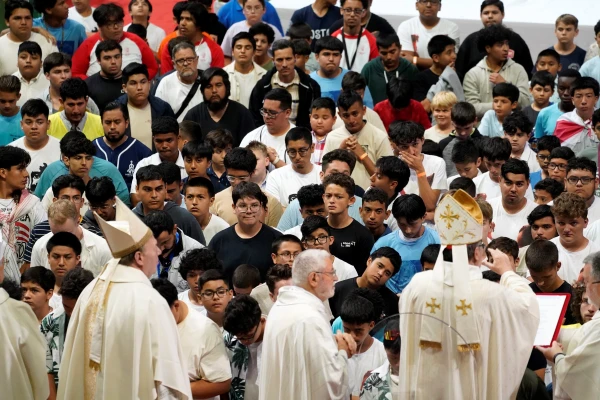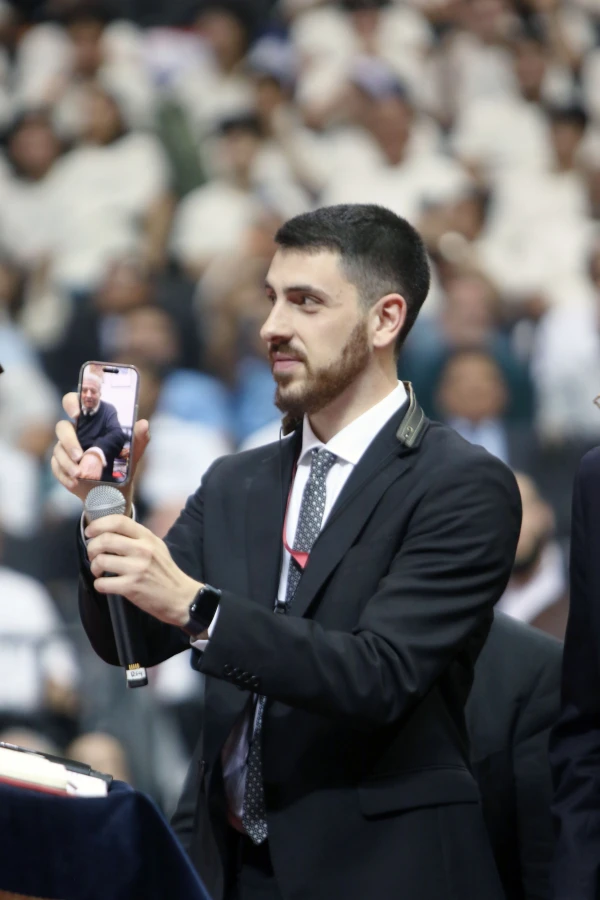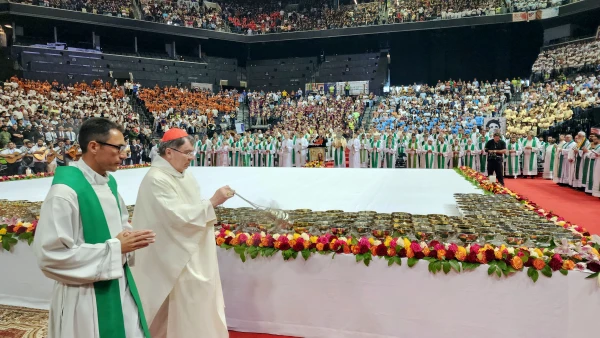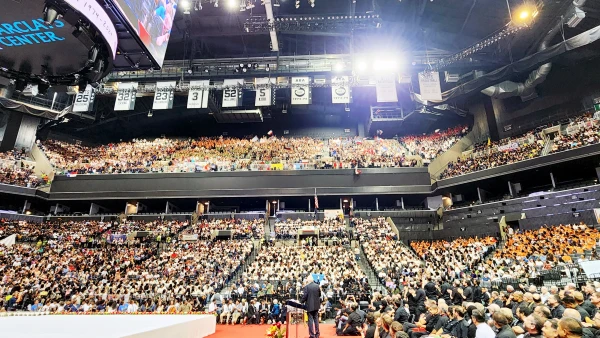More than 20,000 people participated on Sunday, July 7, in the solemn Mass for the 50 years of the Neocatechumenal Way in the United States, presided over by the Nuncio to the North American country, Cardinal Christophe Pierre, and celebrated at the Barclays Center in Brooklyn, New York. .
According to a note from the Neocatechumenal Way sent to ACI Prensa, the Mass commemorated the 50th anniversary of the visit to New York of the initiators of this apostolate, Kiko Argüello and Carmen Hernández, made in 1974.
Receive the main news from ACI Prensa by WhatsApp and Telegram
It is increasingly difficult to see Catholic news on social media. Subscribe to our free channels today:
Thousands of young people from different parts of the United States participated in the Mass, who arrived in Brooklyn after several days of pilgrimage through sanctuaries and holy places in the North American country.
“At the end of the liturgy, about 1,000 young people got up to enter a seminary and begin their preparation for the priesthood; Another 1,500 young women stood up to express their desire to give their lives to Christ by entering a convent or as missionaries,” the note indicates.

The greeting of Kiko Argüello, initiator of the Neocatechumenal Way
Although Kiko Argüello was not in person at the Mass, he joined the celebration with a video call from Madrid (Spain).
Argüello recalled how, in 1974, he visited several parish priests in New York, from a list given to him by the then archbishop, Cardinal Terence Cooke, and how only the last of the priests he met agreed to start a community of the Neocatechumenal Way.

The homily of Cardinal Christophe Pierre
“On this significant anniversary of the Neocatechumenal Way in the United States, I greet you on behalf of Pope Francis and reaffirm his support and appreciation for the work that the Way does in the service of evangelization,” said the Cardinal at the beginning of his homily.
Next, the cardinal recalled what the Holy Father told the neocatechumenals in 2018 in Italy: “Your charism is a great gift from God for the Church of our time. Let us thank the Lord for these 50 years.”
After recalling the importance of going out to find “the lost sheep,” the Nuncio in the United States recalled that “Pope Francis often speaks of opening the doors to people who live in all situations of moral poverty, to those who are have strayed from God, and accompany them back. It is necessary for the Church to open a way back. Is there a way back from addiction, from violence, from despair? “God can make a way where it seems impossible.”
“There is a thirst for God that secularization cannot satisfy (…) This is the mission of the Church: to open the door for sinners to return,” he stressed.

The French cardinal also said that “our failures prepare us for the mission, so that we do not judge the sins of others: only those who have experienced the power of grace can show sinners the way back to God.”
Accompanying Cardinal Pierre at Mass were Cardinal Joseph Tobin of Newark, New Jersey, with Auxiliary Bishops Michael Saporito and Elias Lorenzo; Bishop Robert Brennan of Brooklyn with Auxiliary Bishop James Massa and Bishop Nicholas DiMarzio, bishop emeritus of Brooklyn; and other bishops from the country, in addition to about 300 priests.
The Neocatechumenal Way in the United States
In the United States there are 1,100 communities, in addition to hundreds of families on mission.
There are also 9 diocesan seminaries in the country. mother of The Redeemer, where 300 seminarians are now preparing for the priesthood and a total of 270 priests have already been trained. Seminars are in Newark, Washington DC, Boston, Denver, Dallas, Brooklyn, Bridgeport CT, Miami and Philadelphia.

What is the Neocatechumenal Way?
The Neocatechumenal Way, notes a July 3 statement, was “officially approved by the Holy See in 2008, not as an association or movement, but as a post-baptismal catechumenate, as an instrument to help parishes and dioceses in the work of evangelization.”
The Neocatechumenal Way is present in 135 countries with some 25,000 communities, made up in total of more than one million members.

